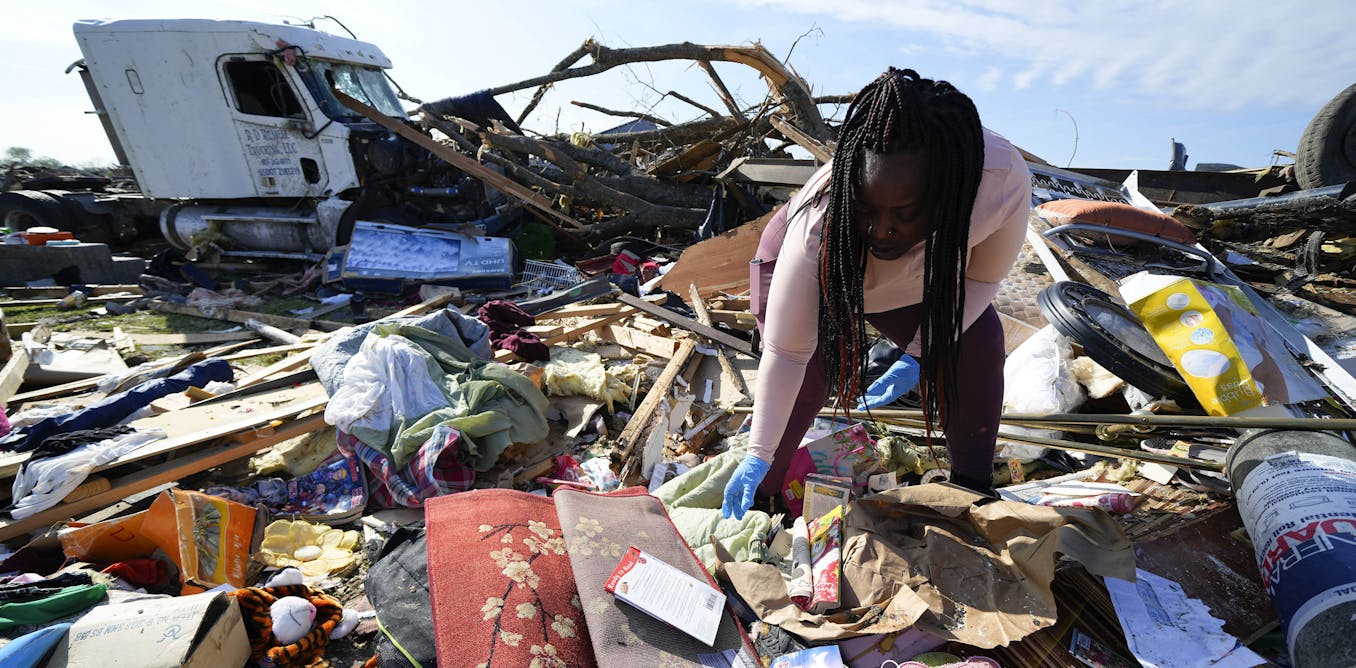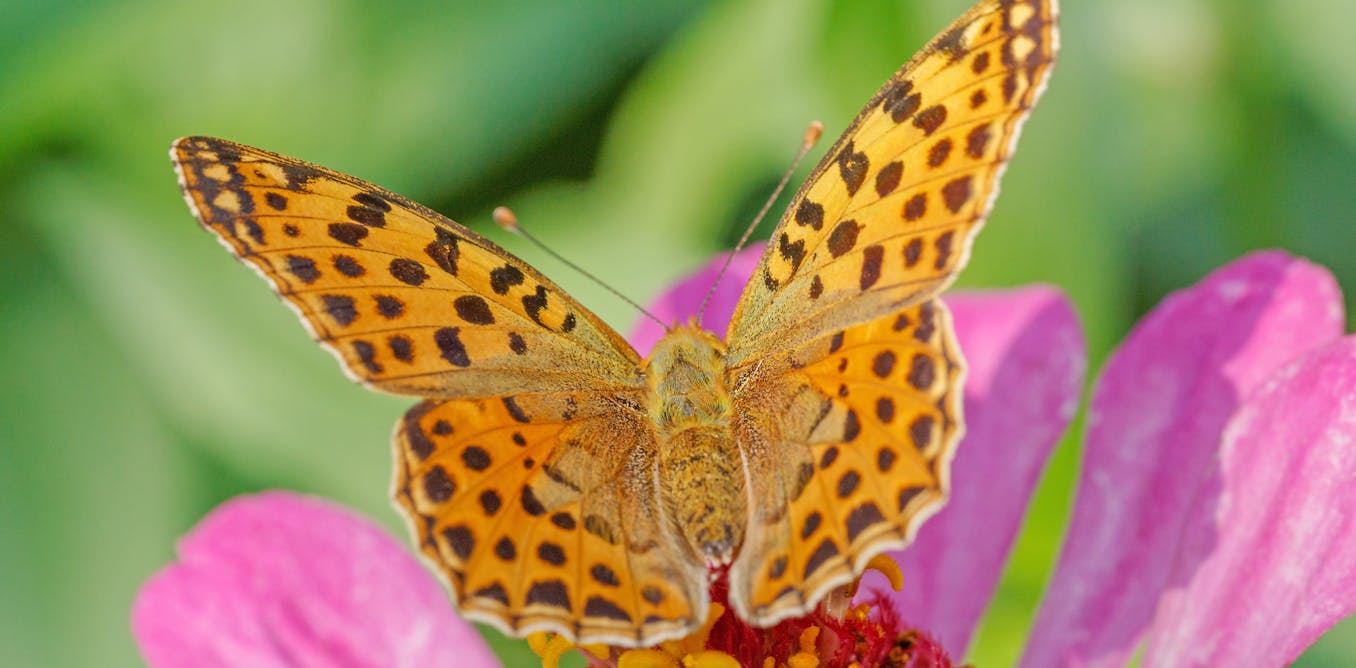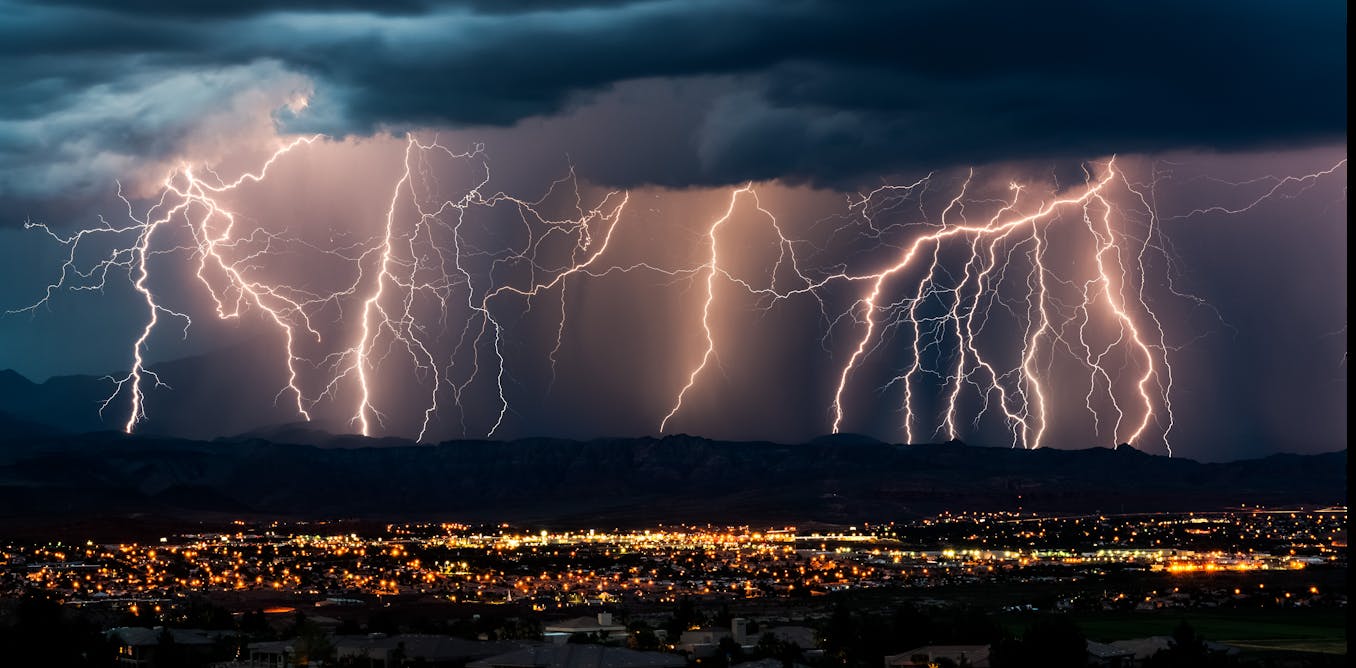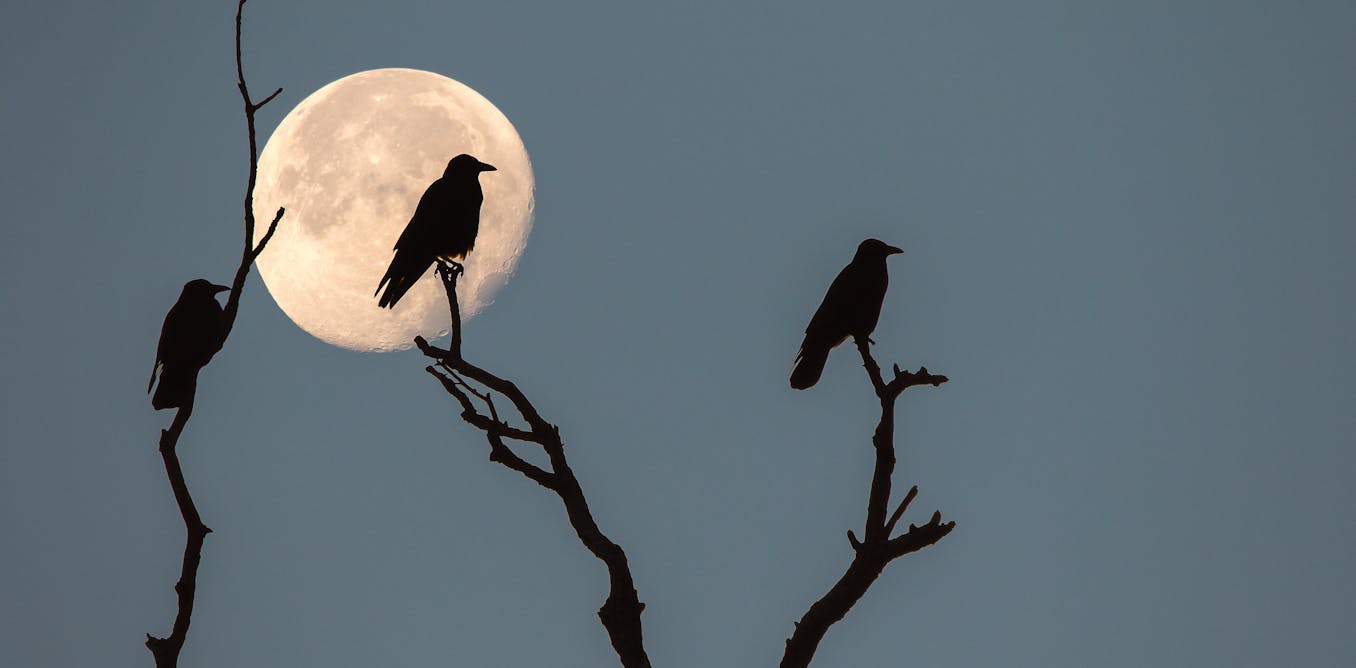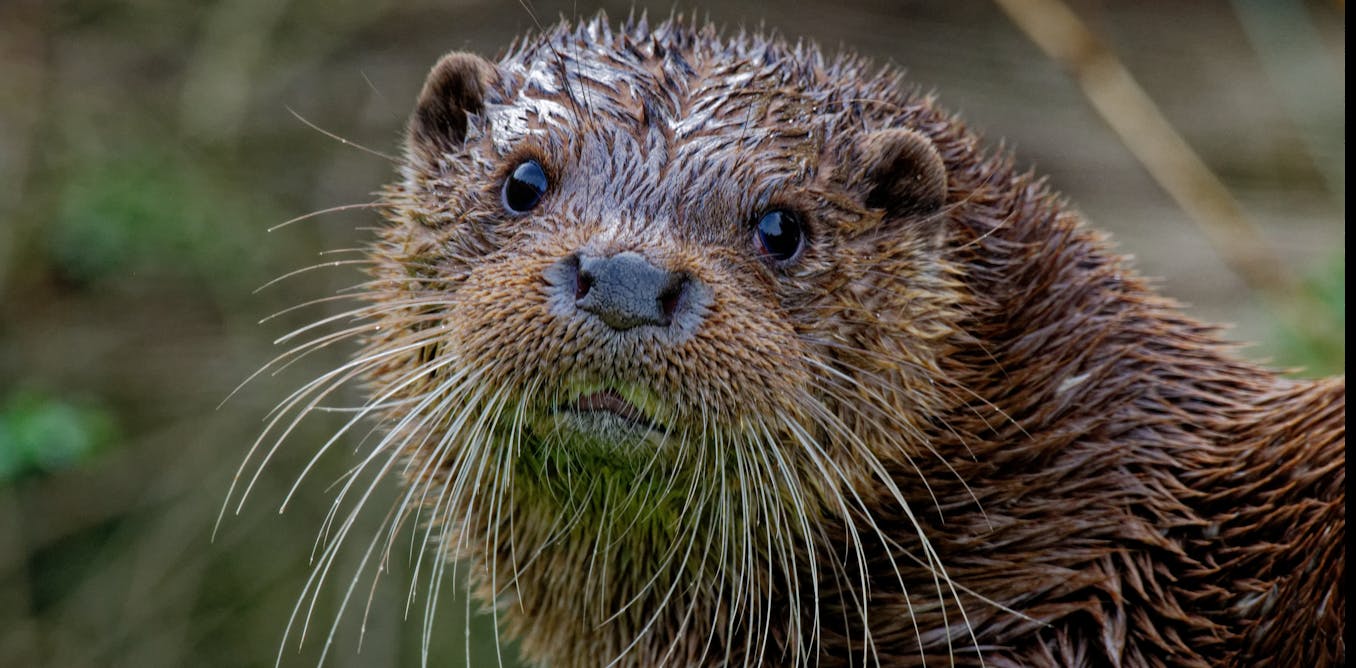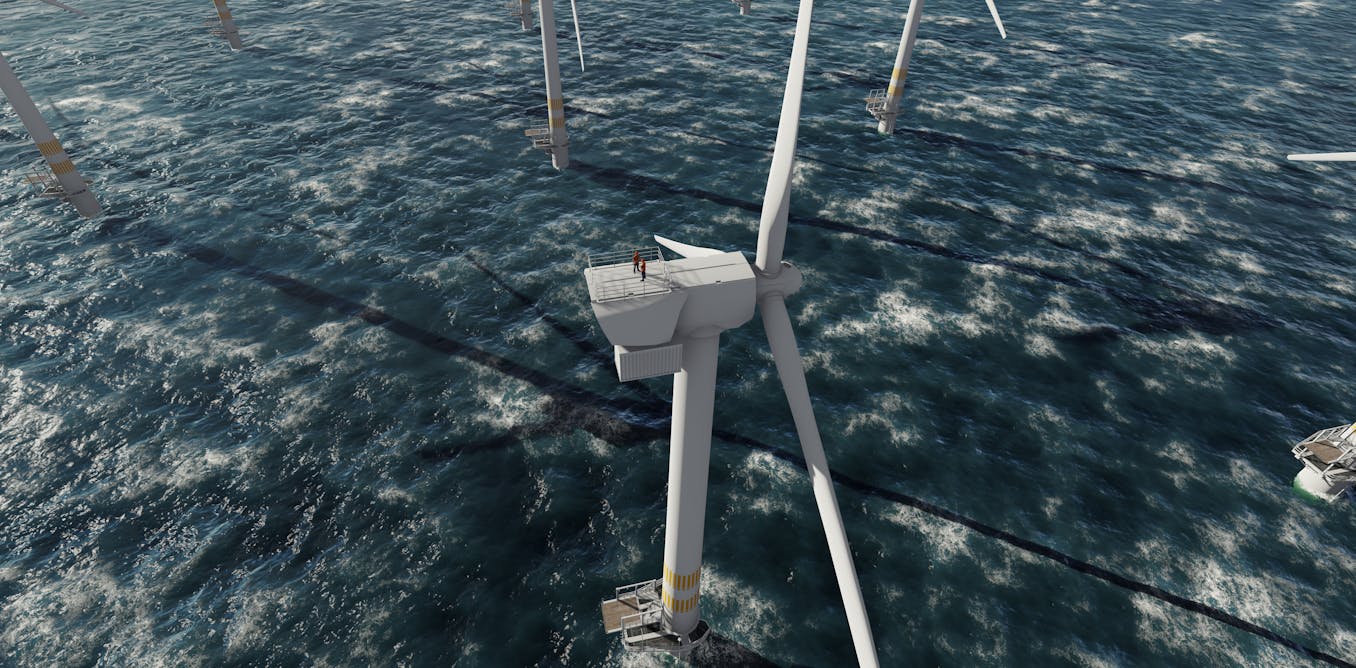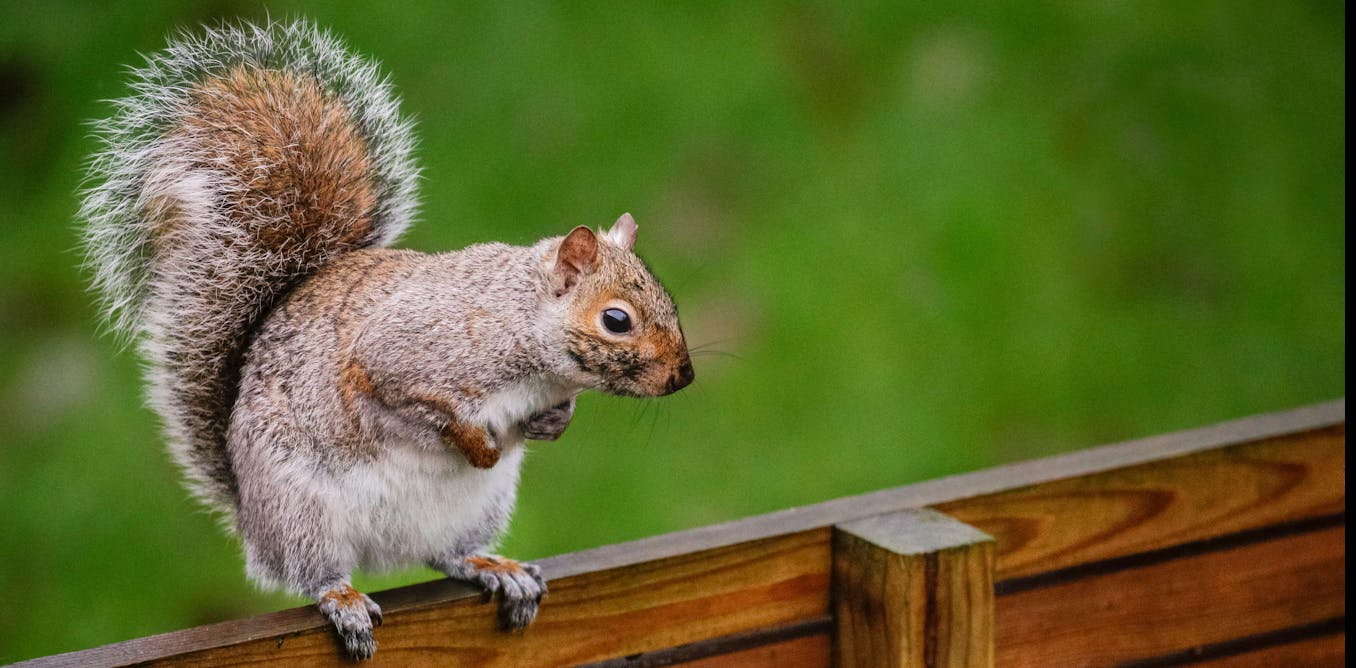The Anthropocene is not an epoch − but the age of humans is most definitely underway
Scientists have been debating the start of the Anthropocene Epoch for 15 years. I was part of those discussions, and I agree with the vote rejecting it.
March 5, 2024 • ~7 min
The estimated 2.5 million people displaced by tornadoes, wildfires and other disasters in 2023 tell a story of recovery in America and who is vulnerable
Census data and research show all things are not equal in disaster displacement, as two experts in disaster recovery explain.
March 4, 2024 • ~8 min
Estimated 2.5 million people displaced by tornadoes, wildfires and other disasters in 2023 tell a story of recovery in America and who is vulnerable
Census data and research show all things are not equal in disaster displacement, as two experts in disaster recovery explain.
March 4, 2024 • ~8 min
Three ways climate change is pushing butterflies and moths to their limits
Climate change puts pressure on British butterflies and moths - sometimes pushing them to the edges of their geographical range or shifting the timing of their life cycle so they can’t feed.
Feb. 29, 2024 • ~8 min
Where does lightning strike? New maps pinpoint 36.8 million yearly ground strike points in unprecedented detail
A new study shows how often lightning strikes and how it behaves, often hitting the ground with multiple strikes from the same flash.
Feb. 27, 2024 • ~7 min
RSPB at 120: the forgotten South American pioneer who helped change Victorian attitudes to birds
A group of determined women founded the RSPB, but they had great support behind the scenes by a little-known Argentinean naturalist.
Feb. 27, 2024 • ~7 min
Could a couple of Thai otters have helped the UK’s otter population recover? Our study provides a hint
Research has revealed how British otters may have been able to recover from species loss in the 1950s with the help of otters from Asia.
Feb. 27, 2024 • ~6 min
Offshore wind farms: policymakers are more influenced by reports that accentuate negative impacts – new study
A new study highlights how different literature portrays the pros and cons of offshore wind. Comprehensive assessment frameworks could create more consistency in the future.
Feb. 22, 2024 • ~7 min
Gut bacteria may explain why grey squirrels outcompete reds – new research
New research suggests the gut bacteria of red and grey squirrels differ significantly, potentially explaining the decline of the native red and the success of its grey counterpart.
Feb. 21, 2024 • ~6 min
/
77



